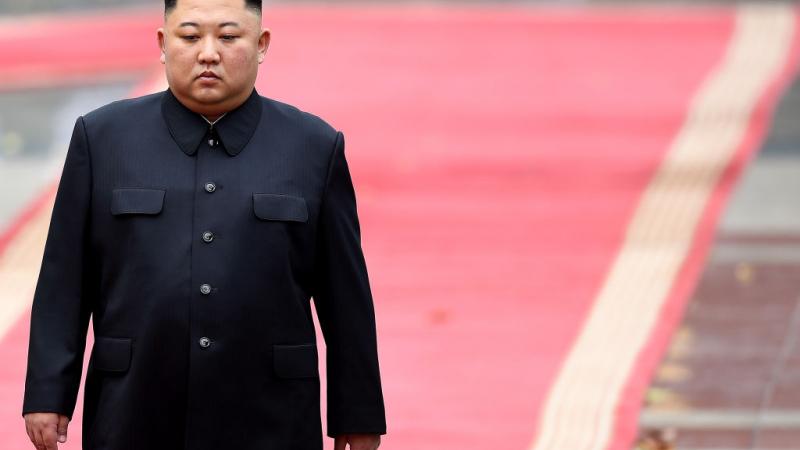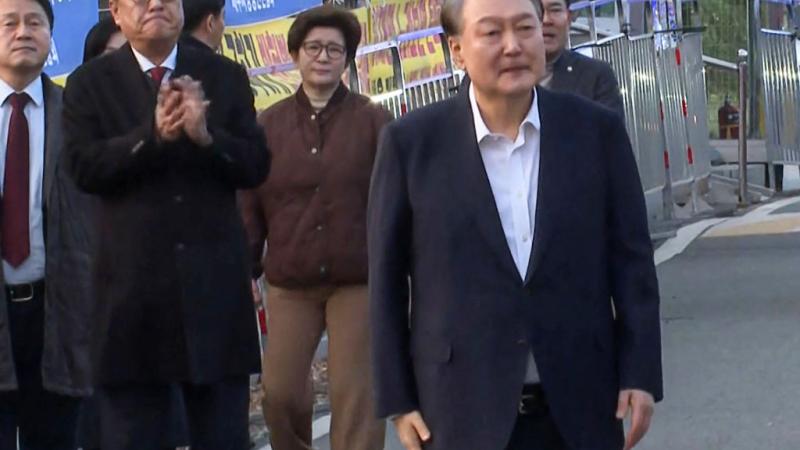Trash balloons and blaring BTS: Tensions rise on Korean Peninsula after North’s provocation
Experts warn that the latest spat between the North and South may spiral out of control.
Tensions are rising – literally with balloons – on the Korean peninsula, as North Korea vows to continue sending trash-laden balloons after South Korea responded to the balloons by blasting music by the popular boy band BTS.
South Korea said last month that North Korea was sending it trash balloons in response to contraband, such as USB devices, radios and medicine, sent by activists in the South. In response to the balloons, a loudspeaker in South Korea blared the South Korean radio program, "Voice of Freedom," across the border for two hours on Sunday.
The radio program began with the South Korean national anthem and then delivered reports about the international condemnation of North Korean dictator Kim Jong Un's missile tests and ties to Russia, according to The Wall Street Journal. The program then began blasting hits by the South Korean band BTS, such as the song "Dynamite."
Kim Yo Jong, the powerful sister of North Korean dictator Kim Jong Un, responded hours later by issuing an apparent threat against the South. "This is a prelude to a very dangerous situation," Kim Yo Jong said about the radio broadcast, according to North Korean-state media outlet KCNA.
The tit-for-tat of political trolling was on display after Kim said that the North had sent 7.5 tons of toilet paper toward the South using 1,400 balloons on Saturday evening into Sunday morning.
She said that the North's response is "justifiable," and "nothing more than a very low-level reflex reaction." Kim also said that the North was set to end its operation on Sunday, but decided not to after hearing the speaker broadcast.
"If South Korea carries out leaflet-scattering and loudspeaker provocations across the border, we will undoubtedly witness a new response from our country. The embarrassment of constantly having to hand over toilet paper will become a part of everyday life in Korea," she threatened. "I sternly warn Seoul to immediately stop doing dangerous things that could lead to further confrontational crises and to reflect on itself."
South Korea said Monday that it appears the North is also building its own speakers along the border in response, as experts say the two nations are engaging in a psychological warfare similar to that witnessed during the Cold War, according to The Associated Press.
While the North and the South have exchanged balloons, radio broadcasts and propaganda materials since the 1950s, the psychological warfare has transformed into a more dangerous situation over the past few weeks, The Independent reported.
South Korea last week suspended a 2018 pact with the North that was intended to lower military tensions. With the latest balloon/music/toilet paper exchange, experts warn that it could spiral out of control.
"Seoul does not want military tension at the inter-Korean border and Pyongyang does not want outside information threatening the legitimacy of the Kim regime," Ewha University, Seoul, professor Leif-Eric Easley said. "For both sides, 'escalating to deescalate' is a risky proposition. North Korea may have already miscalculated, as South Korea’s democracy cannot simply turn off NGO balloon launches the way an autocracy would expect."
While the South had passed a law banning citizens from flying balloons into the North, the law was later determined to be unconstitutional.
Meanwhile, North Korea's ties with Russia and China appear to be growing stronger. Russian President Vladimir Putin is set to visit North Korea in the coming weeks, according to Reuters.
Chinese military aircraft on Friday harassed a Dutch warship that was enforcing United Nations sanctions on North Korea, the Netherlands said, CNN reported Monday. Two Chinese fighter jets circled the Dutch ship several times, while Chinese warplanes and a helicopter approached the boat's patrol helicopter, creating a "potentially unsafe situation," the Dutch Defense Ministry said. This latest episode is one of many Chinese harassment episodes recently reported.
















